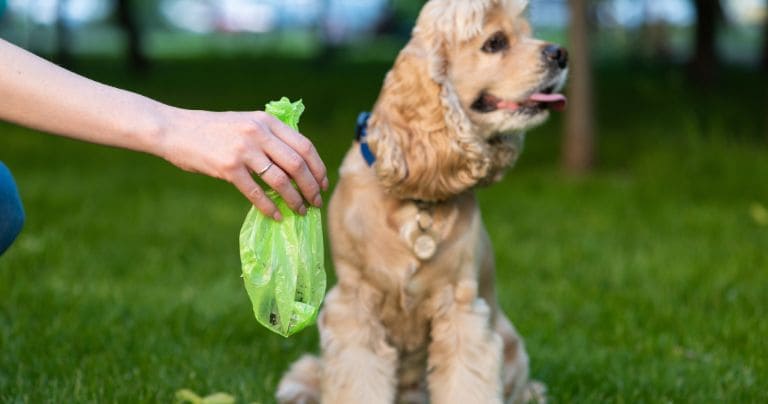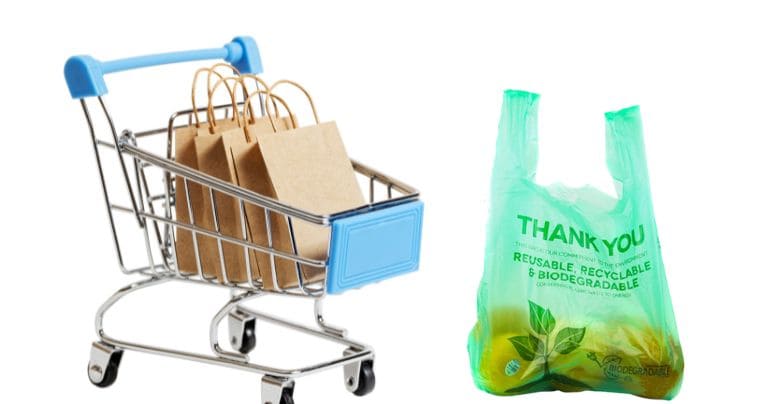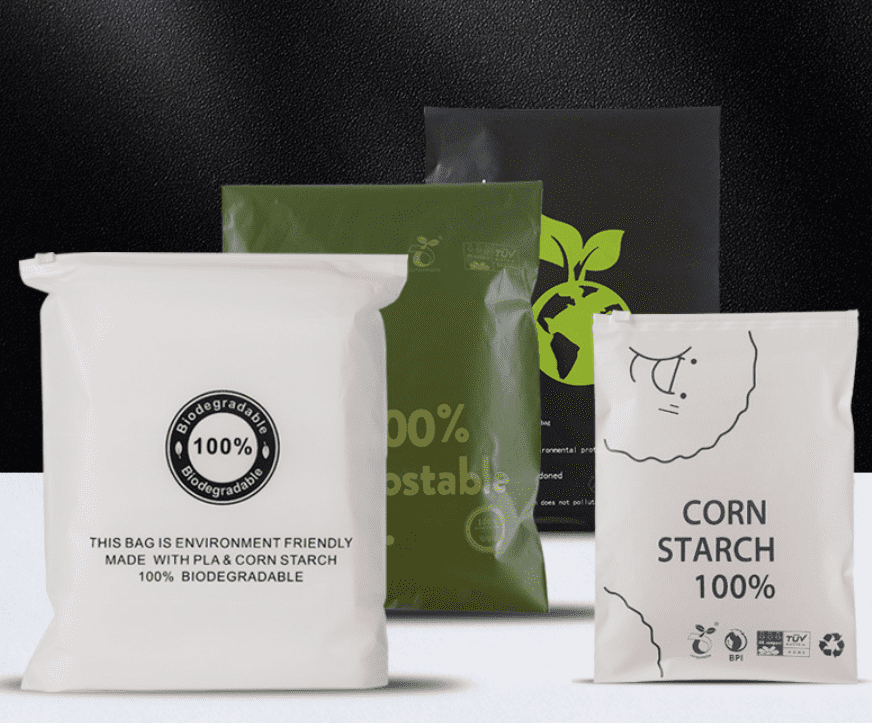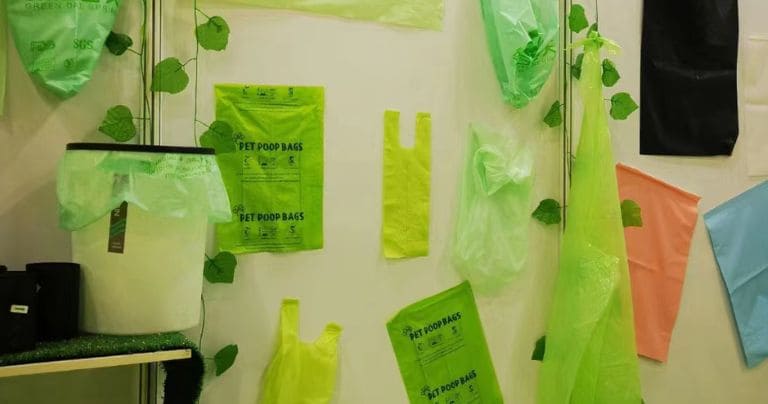As the owner of a business focused on sustainable living solutions, I often encounter questions about the viability and effectiveness of eco-friendly products. A frequent topic of discussion is the use of compostable trash bags. Are they really a better choice compared to traditional plastic bags?
Compostable trash bags offer an eco-friendly alternative to traditional plastic. They are designed to break down completely within a relatively short period, reducing environmental impact significantly. Although they come with a higher price tag, their long-term benefits for the planet make them a worthwhile investment.
In this detailed post, I’ll take you through the various aspects of compostable trash bags, evaluating their cost, environmental impact, and overall effectiveness. Let’s dive into understanding why these bags might be a smart choice for your household or business.

What Environmental Impact Do Compostable Trash Bags Have Compared to Plastic?
When weighing the environmental implications of compostable trash bags against traditional plastic ones, it’s crucial to look at the broader picture. The impact of these choices extends far beyond our immediate surroundings, affecting ecosystems, wildlife, and the overall health of our planet.
Degradation Timeframe
The most striking difference between compostable bags and plastic bags lies in their degradation timeframe. Traditional plastic bags, typically made from polyethylene, can linger in the environment for hundreds of years. During this time, they can cause significant harm to wildlife and ecosystems, often ending up in oceans and waterways, contributing to the growing crisis of plastic pollution.
In contrast, compostable garbage bags are designed to break down much more quickly. Made from plant-based materials like corn starch, these bags can decompose in a compost setting within 180 days under ideal conditions. This rapid degradation means compostable bags don’t contribute to the long-term accumulation of waste in landfills and natural environments.
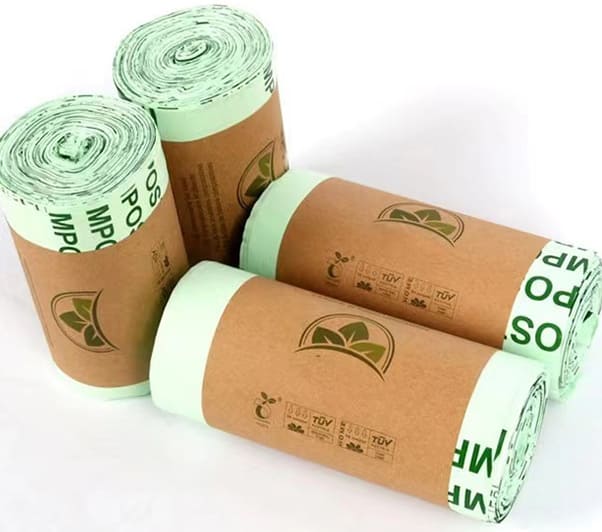
Reduced Carbon Footprint
The production process of compostable bags generally has a lower carbon footprint compared to traditional plastic bags. The materials used in compostable bags often come from renewable resources. Their production tends to emit fewer greenhouse gases, contributing to a reduction in the overall carbon footprint.
Impact on Wildlife and Marine Life
Plastic bags pose a severe threat to wildlife, particularly marine animals. Animals often mistake these bags for food, leading to ingestion and, unfortunately, often fatal consequences. Compostable bags, due to their ability to break down naturally, significantly reduce this risk, contributing to the preservation of wildlife and marine ecosystems.
Soil Health and Fertility
Another benefit of compostable bags is their contribution to soil health. As they break down, they can add nutrients back into the soil, improving its quality and fertility. This is in stark contrast to plastic bags, which offer no such benefits and can even release harmful chemicals into the soil and water as they slowly fragment.
Encouraging Sustainable Practices
Choosing compostable bags over plastic also sends a strong message about the importance of sustainability. It encourages manufacturers and policymakers to invest in and promote environmentally friendly alternatives, fostering a culture of sustainability and responsible consumption.
In summary, the environmental impact of compostable waste bags is significantly more positive than that of traditional plastic bags. From quicker degradation to a lower carbon footprint and better outcomes for wildlife and soil health, compostable bags offer a way to manage waste that aligns with a sustainable and environmentally conscious approach. Making this switch is not just about the bags themselves, but about participating in a larger movement towards a healthier planet.
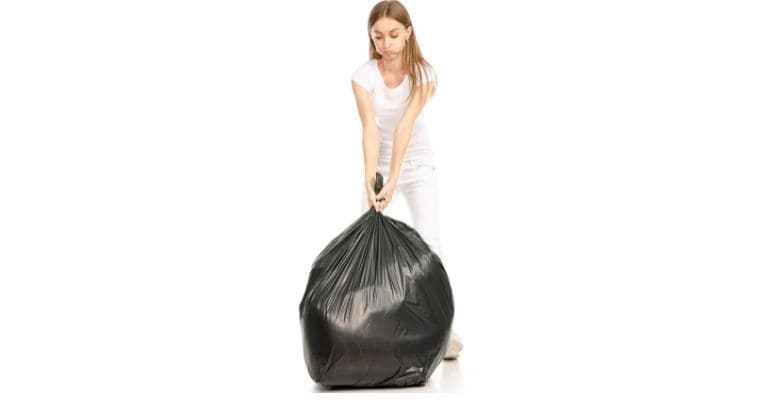
How Cost-Effective Are Compostable Trash Bags in the Long Run?
The debate on the cost-effectiveness of compostable garbage bags compared to traditional plastic ones is not just about the price tag. It’s about understanding the long-term financial and environmental benefits. As someone deeply invested in sustainable living, I’ve seen firsthand how compostable bags can be a cost-effective choice in the bigger picture.
Initial Cost vs. Long-Term Savings
It’s true, compostable trash bags generally come at a higher upfront cost – about 50-60% more than regular plastic bags. However, when evaluating their cost-effectiveness, it’s important to look beyond the initial expense. These bags offer long-term savings by reducing environmental damage, which can translate into economic benefits.
Reducing Environmental Cleanup Costs
The long-term financial burden of plastic waste cleanup is enormous. Governments and communities spend billions annually managing plastic waste – from landfill operations to ocean cleanups. By switching to compostable bags, we contribute to reducing this financial load. The less plastic waste there is, the lower the costs of managing it.
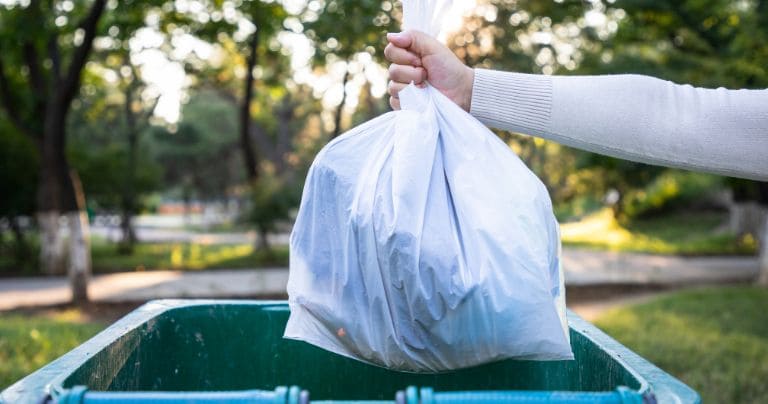
The ROI of Environmental Health
The return on investment (ROI) for using compostable bags can also be measured in terms of environmental health. Healthier ecosystems provide numerous financial benefits, from cleaner water sources to more fertile agricultural land. While these benefits might not directly translate into immediate savings, they play a crucial role in sustaining economic stability and growth.
Supporting a Sustainable Economy
Investing in compostable bags supports the green economy. This emerging sector is not only creating new jobs but is also paving the way for innovative, eco-friendly technologies. As demand for sustainable products grows, we can expect more cost-effective production methods and lower prices over time.
Cost of Inaction
Conversely, the cost of inaction – continuing to use traditional plastic bags – can be high. The environmental damage caused by plastic pollution could lead to more stringent regulations, higher compliance costs for businesses, and increased taxes for waste management. In this light, compostable bags are a proactive investment to avoid future financial burdens.
Personal Contribution to a Sustainable Future
On a personal level, using compostable bags aligns with a lifestyle choice that values environmental stewardship. While the monetary savings may not be immediate, the contribution to a sustainable future and the preservation of natural resources is a significant intangible benefit that can outweigh the initial cost.
In summary, the cost-effectiveness of compostable trash bags extends far beyond their initial price. Their long-term financial and environmental benefits make them a smart investment. By choosing these bags, we’re not just disposing of waste responsibly; we’re contributing to a larger movement towards a sustainable and financially stable future.
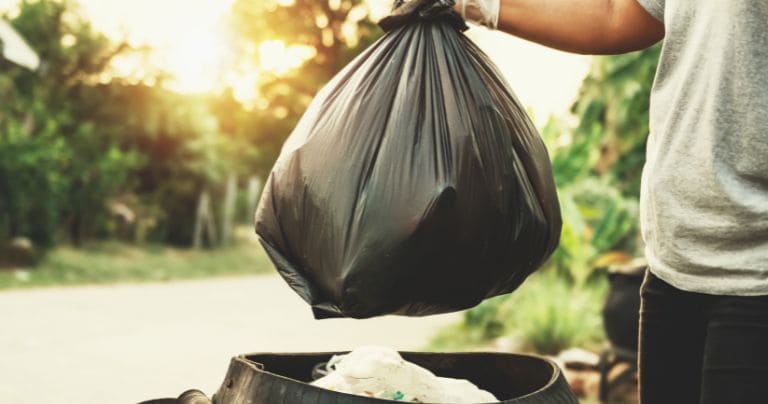
Can Compostable Trash Bags Really Decompose in Household Conditions?
In the journey towards sustainable living, one question that often arises is whether compostable trash bags can actually decompose in typical household conditions. It’s a vital query for environmentally conscious consumers who want to ensure their efforts in using eco-friendly products are genuinely effective.
Understanding the Composition of Compostable Bags
Compostable trash bags are designed to break down under specific conditions. These bags are usually made from plant-based materials like corn starch, which are biodegradable. However, the rate and efficiency of decomposition depend on several factors, including the environmental conditions of the composting area.
Decomposition in Home Composting Systems
In ideal conditions, compostable trash bags can decompose in a home composting system within about 180 days. This process requires a balance of green (nitrogen-rich) and brown (carbon-rich) materials in your compost pile, along with adequate moisture and aeration. The key is to maintain a compost environment that fosters microbial activity, which is crucial for breaking down the material.

Factors Affecting Decomposition
The rate of decomposition can vary based on factors such as the humidity, temperature, and microbial activity in your compost pile. In regions with colder climates, the process might take longer due to lower temperatures, which can slow down microbial activity. Similarly, overly dry or wet conditions can hinder the composting process.
Realistic Expectations in Household Composting
While compostable bags are capable of breaking down in home composting setups, it’s important to have realistic expectations. Not all household compost systems will provide the optimal conditions for rapid decomposition. It’s also crucial to understand that these bags might not break down as completely as food waste or other organic materials, especially in less-than-ideal composting conditions.
The Role of Industrial Composting Facilities
For those who don’t have access to a home composting system, industrial composting facilities can be an effective alternative. These facilities are designed to maintain optimal conditions for composting, allowing compostable trash bags to decompose more efficiently and reliably.
Encouraging Responsible Usage
As consumers, understanding the composting process and the conditions required for effective decomposition is crucial. This knowledge can guide us in properly using compostable trash bags and managing our composting systems, whether at home or through community facilities.
In summary, compostable trash bags can decompose in household conditions, but the effectiveness largely depends on the environment of the compost pile and the user’s management of it. While they offer a sustainable alternative to traditional plastic bags, it’s important to use them responsibly and with an understanding of the composting process to ensure they fulfill their eco-friendly promise.
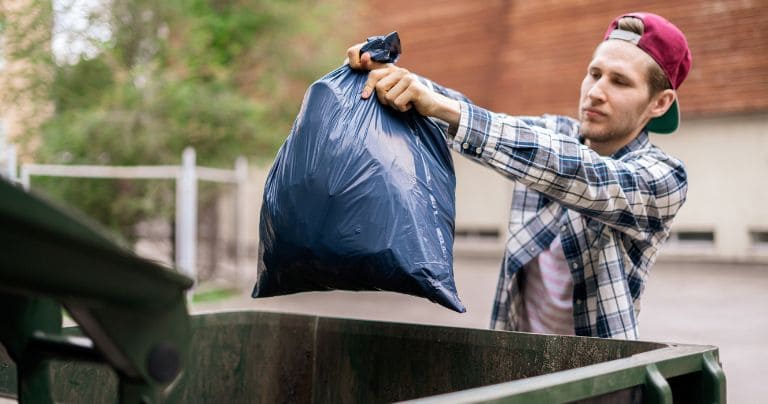
Are There Any Drawbacks to Using Compostable Trash Bags?
As an advocate for sustainable living, I always encourage a balanced view when considering eco-friendly products. Compostable trash bags are no exception. While they offer significant environmental benefits, it’s also important to be aware of their potential drawbacks to make an informed choice.
Strength and Durability Concerns
One of the most common concerns about compostable trash bags is their strength compared to traditional plastic bags. They are often not as tear-resistant, which can be a challenge when disposing of sharp or heavy objects. This reduced durability means they might not be suitable for all types of waste, especially if the trash contains items that could puncture or tear the bag.
Storage and Shelf Life
Compostable bags, due to their nature, can start to break down if not stored correctly. Exposure to heat and moisture can accelerate the degradation process, even before they are used. This means they have a shorter shelf life and require careful storage, away from direct sunlight and damp conditions, to maintain their integrity until they’re ready to be used.
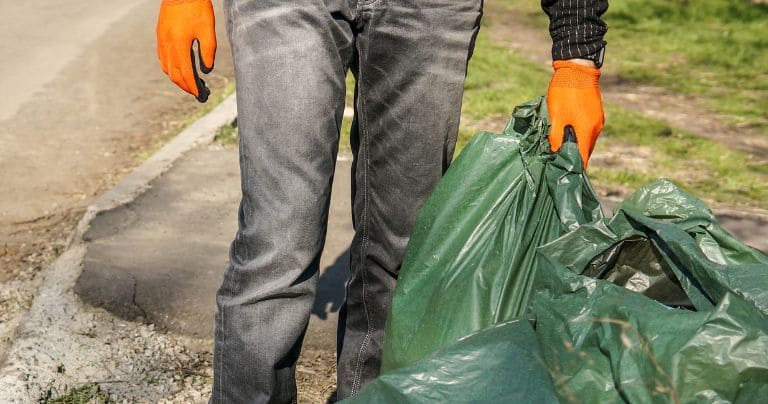
Cost Factor
Another consideration is the cost. Biodegradable compostable bags are generally more expensive than regular plastic bags. For households and businesses looking to switch, this cost difference can be a significant factor, especially when purchasing in large quantities.
Composting Conditions
While compostable bags are designed to break down in composting environments, not all conditions are ideal for this process. Inadequate composting conditions, like lack of proper aeration or moisture, can slow down or even halt the decomposition process. This means that without access to an industrial composting facility or a well-maintained home compost system, the bags may not break down as intended.
Misconceptions about Disposal
There’s also a common misconception that compostable bags can be disposed of in nature or in regular landfills with no repercussions. This is not the case, as they require specific composting conditions to decompose properly. Incorrect disposal can lead to them behaving much like regular plastic bags, contributing to landfill waste.
Impact on Recycling Systems
Lastly, when compostable bags are mistakenly placed in recycling bins, they can contaminate the recycling stream. This is because they cannot be processed the same way as conventional plastics, leading to challenges in recycling facilities.
In summary, while compostable trash bags are an eco-friendly alternative to traditional plastics, they come with certain limitations regarding durability, cost, storage, and disposal requirements. Understanding these drawbacks is essential for making an informed decision on whether they fit your specific needs and how to use them effectively in your pursuit of a sustainable lifestyle.
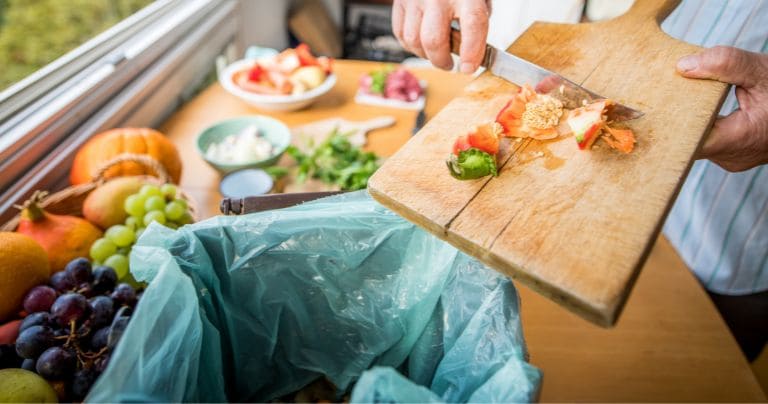
How Do Compostable Trash Bags Fit into Larger Environmental Efforts?
In the grand scheme of environmental stewardship, every choice we make, every product we use, plays a part in shaping the future of our planet. Compostable trash bags are a piece of this larger puzzle, representing a shift towards more sustainable practices. But how exactly do they fit into broader environmental efforts?
Reducing Plastic Pollution
One of the most pressing environmental issues is plastic pollution. Traditional plastic bags, which take hundreds of years to decompose, contribute significantly to this problem. By opting for compostable trash bags, we take a step away from reliance on plastics, reducing the amount of non-biodegradable waste that ends up in landfills, oceans, and natural habitats.
Promoting Sustainable Resources
Compostable trash bags are often made from renewable resources like cornstarch, unlike conventional plastic bags derived from petroleum. This shift to bio-based materials supports sustainable agriculture and reduces our dependence on fossil fuels, aligning with broader efforts to move towards a more circular economy.
Encouraging Composting Practices
The use of compostable bags inherently promotes composting – a key component of reducing organic waste in landfills. When used correctly, these bags can help more people engage in composting, thereby diverting food waste from landfills and returning valuable nutrients to the soil.

Educating and Influencing Consumer Behavior
Choosing compostable bags also has an educational aspect. It raises awareness about sustainable alternatives and encourages consumers to think about their environmental impact. This can lead to broader changes in consumer behavior, where more people opt for products that are not just good for them but are also good for the planet.
Supporting Policy Changes
The growing popularity of compostable trash bags can influence policy decisions. As more people and businesses adopt these eco-friendly alternatives, it can drive governments to implement policies that support environmental sustainability, such as banning single-use plastics and investing in composting infrastructure.
Challenges and Opportunities for Improvement
While compostable bags are a positive step, they’re not a perfect solution. They work best when part of a larger system of environmental practices, including effective waste management and composting facilities. Recognizing their limitations is just as important as understanding their benefits, as it opens avenues for further innovation and improvement in sustainable product development.
In summary, compostable trash bags play a significant role in larger environmental efforts. They are a proactive choice in reducing plastic pollution, supporting sustainable resources, encouraging composting, influencing consumer behavior, and potentially shaping environmental policies. As part of our collective journey towards sustainability, they represent an important step in the right direction, acknowledging that even small changes can have a big impact.

Conclusion
In conclusion, compostable trash bags, despite their higher initial cost, present significant environmental benefits. They offer a practical solution to reduce plastic waste and its associated long-term impacts. For those committed to sustainable living and environmental responsibility, they are indeed a worthwhile investment.

